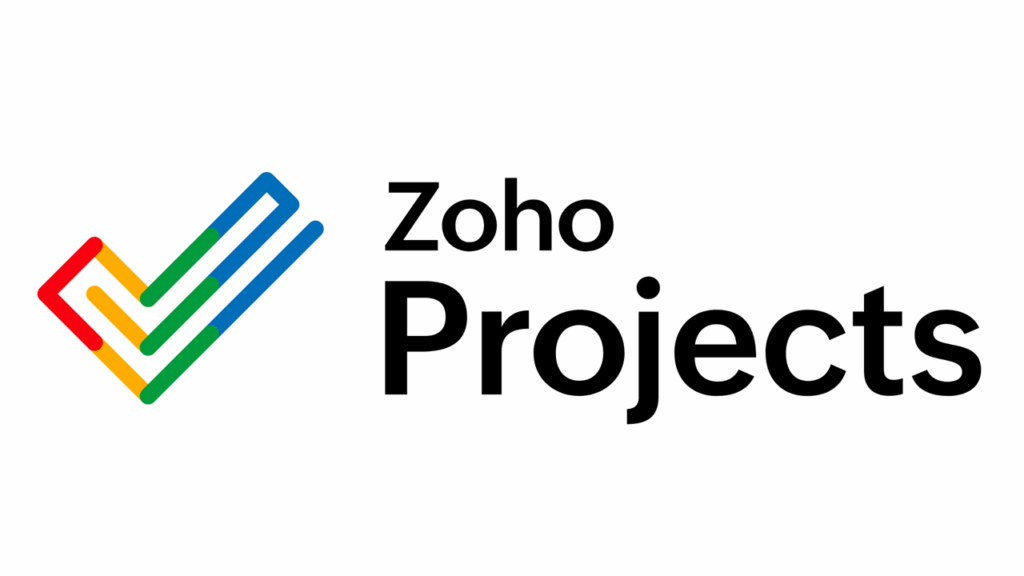Project Management Apprenticeship

In today’s rapidly evolving business landscape, project management has emerged as one of the most critical skills driving organizational success. Furthermore, apprenticeships in project management offer a unique pathway to enter this dynamic field, combining practical experience with formal learning. This comprehensive guide explores everything you need to know about project management apprenticeships and how they can transform your career trajectory.
Table of Contents
- Quick Summary
- What is Project Management Apprenticeship
- Essential Project Management Tools
- Core Components of Project Management Apprenticeships
- Benefits and Advantages
- Career Progression Opportunities
- Industry Applications
- Skills Development Framework
- Certification and Qualification Pathways
- Choosing the Right Program
- Conclusion
- Frequently Asked Questions
- Benefits of Cooperation with Solution4Guru Company
Quick Summary
Project management apprenticeships represent a transformative approach to entering the professional world of project coordination and leadership. Consequently, these programs combine theoretical knowledge with hands-on experience, allowing aspiring project managers to develop essential skills while earning a salary. Moreover, apprentices gain exposure to industry-standard tools like Quickbase, Smartsheet, and Zoho, which are fundamental to modern project management practices.
| Key Aspect | Details |
|---|---|
| Duration | 12-24 months typically |
| Learning Style | Work-based with formal training |
| Qualification Level | Level 4-6 (equivalent to higher education) |
| Salary Range | $24000-$34000 starting |
| Career Progression | Project Coordinator → Senior PM → Program Manager |
What is Project Management Apprenticeship
A project management apprenticeship is a structured training program that combines practical workplace experience with formal education to develop competent project managers. Additionally, these programs are designed to bridge the gap between academic theory and real-world application, ensuring apprentices gain both knowledge and practical skills.
Key Characteristics
Project management apprenticeships typically encompass several distinctive features that set them apart from traditional educational pathways. First and foremost, apprentices work within actual business environments, managing real projects under the guidance of experienced mentors. Subsequently, they attend formal training sessions, either online or in-person, to develop theoretical understanding of project management methodologies.
The apprenticeship model emphasizes continuous assessment rather than final examinations, allowing for ongoing evaluation of both practical performance and theoretical knowledge. Furthermore, apprentices are employed throughout their training period, receiving a salary while developing their skills and contributing to organizational objectives.
Learning Outcomes
Upon completion of a project management apprenticeship, participants will have developed comprehensive competencies in various areas. These include project planning and initiation, stakeholder management, risk assessment and mitigation, budget management and cost control, team leadership and communication, and quality assurance and delivery management.
Essential Project Management Tools
Modern project management relies heavily on sophisticated software platforms that streamline processes, enhance collaboration, and improve project outcomes. Consequently, project management apprentices must become proficient in industry-leading tools such as Quickbase, Smartsheet, and Zoho.
Quickbase for Project Management

Quickbase serves as a powerful low-code platform that enables project managers to create custom applications tailored to their specific project requirements. Moreover, apprentices learn to leverage Quickbase‘s capabilities for project tracking, resource allocation, and performance monitoring.
Key Features for Apprentices:
- Custom database creation for project data management
- Automated workflow processes that reduce manual tasks
- Real-time reporting and dashboard capabilities
- Integration with other business systems and tools
- Mobile accessibility for on-the-go project management
Project management apprentices working with Quickbase develop skills in database design, process automation, and data visualization. Additionally, they learn to create user-friendly interfaces that facilitate team collaboration and stakeholder communication.
Smartsheet Solutions

Smartsheet represents a versatile work management platform that combines the familiarity of spreadsheets with powerful project management capabilities. Therefore, apprentices benefit from its intuitive interface while accessing advanced features for complex project coordination.
Apprenticeship Applications:
| Feature | Application in Training |
|---|---|
| Gantt Charts | Timeline visualization and dependency management |
| Resource Management | Allocation planning and workload balancing |
| Collaboration Tools | Team communication and file sharing |
| Automated Workflows | Process standardization and efficiency |
| Portfolio Dashboards | Multi-project oversight and reporting |
Through Smartsheet training, apprentices develop proficiency in project scheduling, resource optimization, and collaborative work management. Furthermore, they learn to create automated workflows that improve project efficiency and reduce administrative overhead.
Zoho Project Management Suite

Zoho Projects offers a comprehensive project management solution that integrates seamlessly with other Zoho business applications. Consequently, apprentices gain experience with an ecosystem approach to business management, understanding how project management connects with CRM, finance, and other organizational functions.
Training Focus Areas:
- Task management and milestone tracking
- Time tracking and productivity analysis
- Document management and version control
- Budget tracking and expense management
- Client portal and external stakeholder communication
Apprentices working with Zoho develop skills in integrated business management, learning how project success connects to broader organizational objectives and customer satisfaction.
Core Components of Project Management Apprenticeships
Project management apprenticeships are structured around several fundamental components that ensure comprehensive skill development. Initially, apprentices engage in workplace learning, where they work alongside experienced project managers on live projects. This hands-on experience provides invaluable insight into real-world project challenges and solutions.
Simultaneously, formal training sessions cover theoretical aspects of project management, including methodologies like PRINCE2, Agile, and Scrum. These sessions are typically delivered through a combination of online learning platforms, workshops, and seminars. Moreover, apprentices participate in regular assessments that evaluate both their practical performance and theoretical understanding.
Mentorship and Support
A crucial element of successful project management apprenticeships is the mentorship provided by experienced professionals. Mentors guide apprentices through complex project scenarios, share industry insights, and provide feedback on performance. Additionally, mentors help apprentices understand organizational culture, stakeholder dynamics, and strategic decision-making processes.
Regular one-to-one meetings between mentors and apprentices ensure continuous development and address any challenges or concerns. Furthermore, mentors play a vital role in career planning, helping apprentices identify progression opportunities and develop professional networks.
Benefits and Advantages

Project management apprenticeships offer numerous advantages over traditional educational pathways or entry-level employment. Primarily, apprentices earn while they learn, providing financial stability during the training period. This approach eliminates the debt burden associated with university education while providing practical, marketable skills.
Professional Development Benefits
The combination of theoretical learning and practical application accelerates professional development significantly. Apprentices gain exposure to diverse project types, industries, and organizational structures, broadening their experience base. Moreover, they develop professional networks through interactions with colleagues, clients, and industry professionals.
Key Advantages Include:
- Immediate practical application of theoretical concepts
- Development of industry-relevant technical skills
- Building professional relationships and networks
- Gaining recognized qualifications without debt
- Access to career progression opportunities
- Development of soft skills through real-world interactions
Employer Perspective
From an employer’s perspective, project management apprenticeships provide access to motivated, trainable talent while developing internal capabilities. Companies can shape apprentices according to their specific methodologies, cultures, and project requirements. Additionally, apprenticeships often result in higher employee retention rates compared to traditional recruitment methods.
Career Progression Opportunities
Project management apprenticeships serve as launching pads for diverse career trajectories within the field. Initially, apprentices typically progress to project coordinator or assistant project manager roles upon completion. Subsequently, career advancement opportunities include senior project manager, program manager, portfolio manager, and project management office (PMO) director positions.
Specialized Career Paths
The project management field offers numerous specialization opportunities that apprentices can pursue. These include IT project management, focusing on technology implementations and digital transformations. Construction project management involves infrastructure, building, and civil engineering projects. Additionally, healthcare project management addresses medical facility improvements and system implementations.
Marketing project management encompasses campaign development, brand launches, and digital marketing initiatives. Financial services project management covers regulatory compliance, system upgrades, and process improvements. Furthermore, manufacturing project management involves production optimization, facility upgrades, and supply chain improvements.
Industry Applications
Project management apprenticeships prepare individuals for roles across diverse industries, each with unique challenges and requirements. In the technology sector, apprentices learn to manage software development projects, system implementations, and digital transformation initiatives. The construction industry offers opportunities in residential, commercial, and infrastructure development projects.
Sector-Specific Skills
Different industries require specialized knowledge and approaches to project management. Healthcare projects demand understanding of regulatory compliance, patient safety considerations, and clinical workflows. Financial services projects require knowledge of regulatory frameworks, risk management, and compliance requirements.
| Industry | Key Focus Areas | Typical Project Types |
|---|---|---|
| Technology | Agile methodologies, software development | System upgrades, app development |
| Construction | Safety regulations, resource management | Building construction, infrastructure |
| Healthcare | Compliance, patient safety | Facility improvements, system implementations |
| Finance | Risk management, regulatory compliance | Process improvements, system upgrades |
| Manufacturing | Quality control, efficiency optimization | Production line improvements, facility upgrades |
Skills Development Framework
Project management apprenticeships follow structured frameworks that ensure comprehensive skill development across technical, leadership, and interpersonal competencies. Technical skills include proficiency in project management software, understanding of methodologies like PRINCE2 and Agile, and knowledge of industry-specific regulations and standards.
Leadership and Soft Skills
Effective project management requires strong leadership and communication skills, which apprenticeships develop through real-world application. Apprentices learn to lead diverse teams, manage stakeholder expectations, and navigate organizational politics. Additionally, they develop problem-solving abilities, decision-making skills, and emotional intelligence.
Communication skills are particularly emphasized, as project managers must interact with stakeholders at all organizational levels. This includes written communication through reports and documentation, verbal communication in meetings and presentations, and digital communication through project management platforms and tools.
Analytical and Strategic Thinking
Project management apprenticeships develop analytical and strategic thinking capabilities essential for successful project delivery. Apprentices learn to analyze project requirements, assess risks and opportunities, and develop comprehensive project plans. Moreover, they develop skills in data analysis, performance measurement, and continuous improvement.
Strategic thinking involves understanding how projects align with organizational objectives, identifying potential synergies between projects, and optimizing resource allocation across project portfolios. These skills are developed through exposure to senior management decision-making processes and strategic planning sessions.
Certification and Qualification Pathways

Project management apprenticeships typically lead to recognized qualifications that enhance career prospects and professional credibility. Common qualifications include the Association for Project Management (APM) Project Management Qualification, PRINCE2 Foundation and Practitioner certifications, and Project Management Professional (PMP) certification from the Project Management Institute.
Continuing Professional Development
Upon completing apprenticeships, project managers must engage in continuing professional development to maintain certifications and stay current with industry trends. This includes attending conferences, workshops, and training sessions, participating in professional associations and networking events, and pursuing advanced certifications and specializations.
Popular Advancement Certifications:
- Program Management Professional (PgMP)
- Portfolio Management Professional (PfMP)
- Agile Certified Practitioner (PMI-ACP)
- Certified Scrum Master (CSM)
- PRINCE2 Agile certification
Choosing the Right Program
Selecting an appropriate project management apprenticeship program requires careful consideration of several factors. Program reputation and employer recognition are crucial, as they impact career prospects and networking opportunities. Additionally, the program curriculum should align with individual career goals and industry interests.
Location and flexibility considerations are important for work-life balance and accessibility. Some programs offer remote or hybrid learning options, while others require on-site attendance. Furthermore, support services such as mentorship, career guidance, and additional resources should be evaluated.
Evaluation Criteria
When evaluating project management apprenticeship programs, consider the following factors:
Program Structure and Content:
- Curriculum comprehensiveness and relevance
- Balance between theoretical and practical learning
- Integration with industry-standard tools and methodologies
- Assessment methods and qualification outcomes
Support and Resources:
- Quality and availability of mentorship
- Access to learning materials and resources
- Career guidance and job placement assistance
- Networking opportunities and industry connections
Practical Considerations:
- Program duration and scheduling flexibility
- Location and travel requirements
- Financial arrangements and salary during training
- Post-program employment prospects and support
Let’s summarize
Project management apprenticeships represent an exceptional pathway into a rewarding and dynamic career field. Through the combination of practical experience and formal learning, apprentices develop comprehensive skills that are immediately applicable in the workplace. Moreover, the integration of industry-standard tools like Quickbase, Smartsheet, and Zoho ensures that graduates are well-prepared for modern project management challenges.
The apprenticeship model addresses the skills gap in project management while providing individuals with debt-free education and immediate earning potential. Furthermore, the diverse career opportunities available across industries ensure that project management skills remain relevant and valuable throughout one’s professional journey.
As organizations continue to recognize the value of structured project management approaches, the demand for qualified project managers will continue to grow. Consequently, project management apprenticeships offer a strategic advantage for both individuals seeking career advancement and organizations developing internal capabilities.
The integration of advanced project management software platforms during apprenticeships ensures that graduates can immediately contribute to organizational efficiency and project success. Tools like Quickbase enable custom application development, Smartsheet provides versatile work management capabilities, and Zoho offers comprehensive project management solutions that integrate with broader business operations.
Frequently Asked Questions
Most project management apprenticeships require a minimum of A-levels or equivalent qualifications, though some programs accept candidates with strong work experience and demonstrated aptitude. Additionally, employers often look for communication skills, analytical thinking ability, and genuine interest in project coordination. Some programs may require basic computer literacy and familiarity with business environments.
Project management apprenticeships typically range from 12 to 24 months, depending on the qualification level and program intensity. Level 4 apprenticeships usually take 12-18 months, while higher-level programs may extend to 24 months. The duration also depends on prior experience, learning pace, and the complexity of projects undertaken during the apprenticeship period.
During apprenticeships, salaries typically range from $24000 to $34000, depending on location, employer, and program level. Upon completion, qualified project managers can expect starting salaries of $33600 to $47000, with significant potential for growth. Experienced project managers often earn $53000 to $81000 or more, particularly in specialized industries or senior roles.
Project management apprenticeships are available across numerous industries, including technology, construction, healthcare, finance, manufacturing, and government sectors. However, availability may vary by location and local employer demand. Some industries may offer specialized apprenticeships that focus on sector-specific project management challenges and requirements.
Project management apprenticeships offer practical experience and immediate earning potential while avoiding student debt. University degrees provide broader theoretical knowledge and may be preferred for certain senior positions. However, apprenticeships often result in better job readiness and industry connections. Many professionals combine both approaches, using apprenticeships for entry and pursuing degrees for advancement.
Benefits of Cooperation with Solution4Guru Company
Solution4Guru offers comprehensive support for individuals and organizations seeking to maximize the benefits of project management apprenticeships. Their expertise in project management methodologies, combined with deep understanding of apprenticeship programs, provides invaluable guidance throughout the learning journey.
Solution for Guru recognizes that each apprentice has unique learning needs, career goals, and industry interests. Consequently, they develop customized learning pathways that align with individual objectives while ensuring comprehensive skill development. This personalized approach maximizes learning outcomes and career advancement potential.

Their expertise with project management software platforms, including Quickbase, Smartsheet, and Zoho, ensures that apprentices receive current, relevant training on industry-standard tools. Moreover, they stay updated with emerging technologies and methodologies, incorporating these developments into their training programs.
By partnering with Solution for Guru, apprentices and organizations can ensure that project management apprenticeships deliver maximum value, preparing individuals for successful careers while meeting organizational project management needs.



